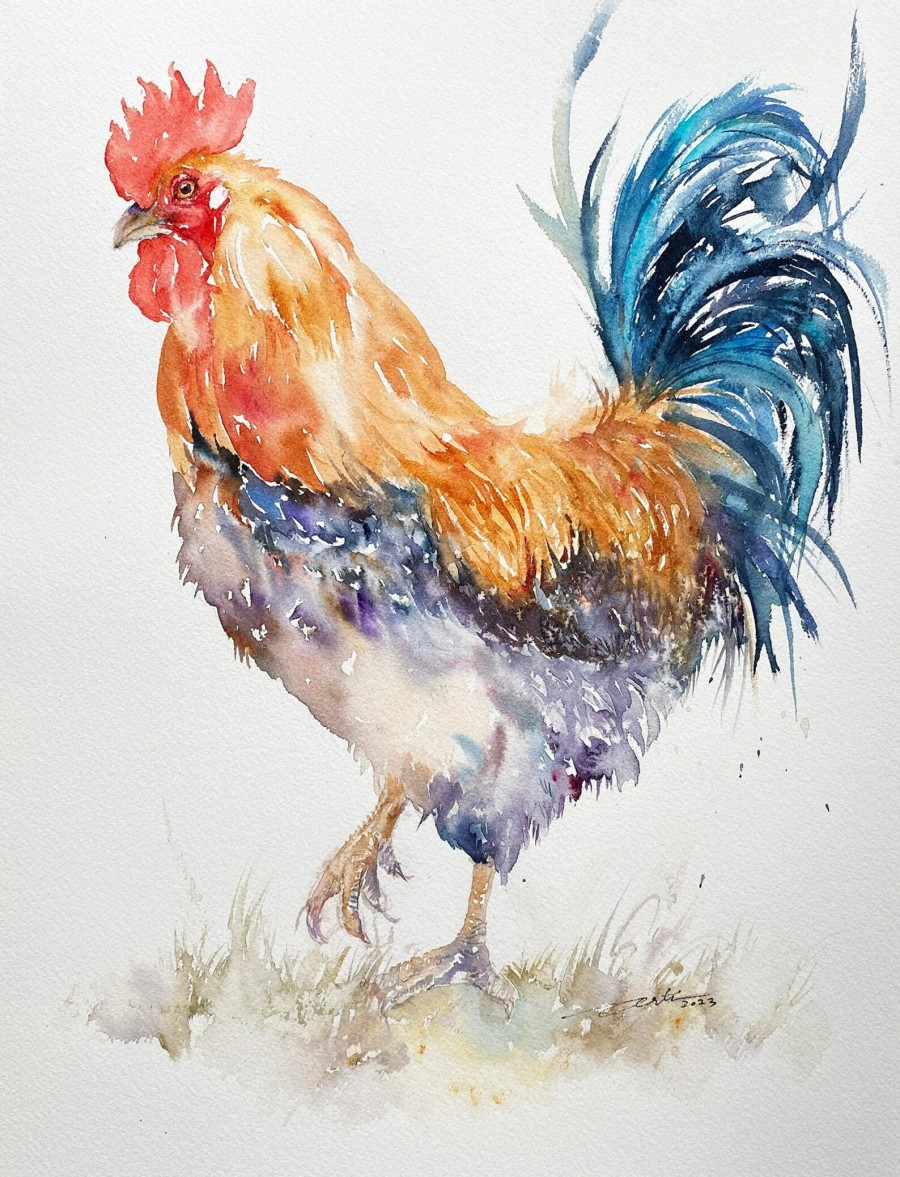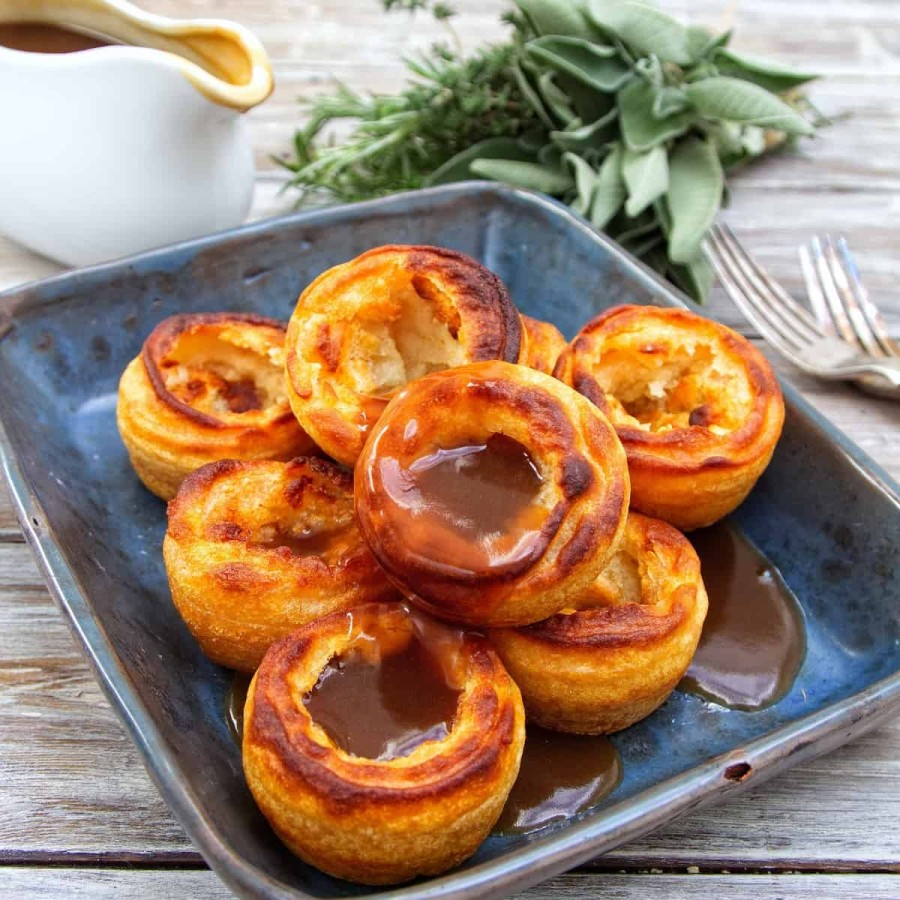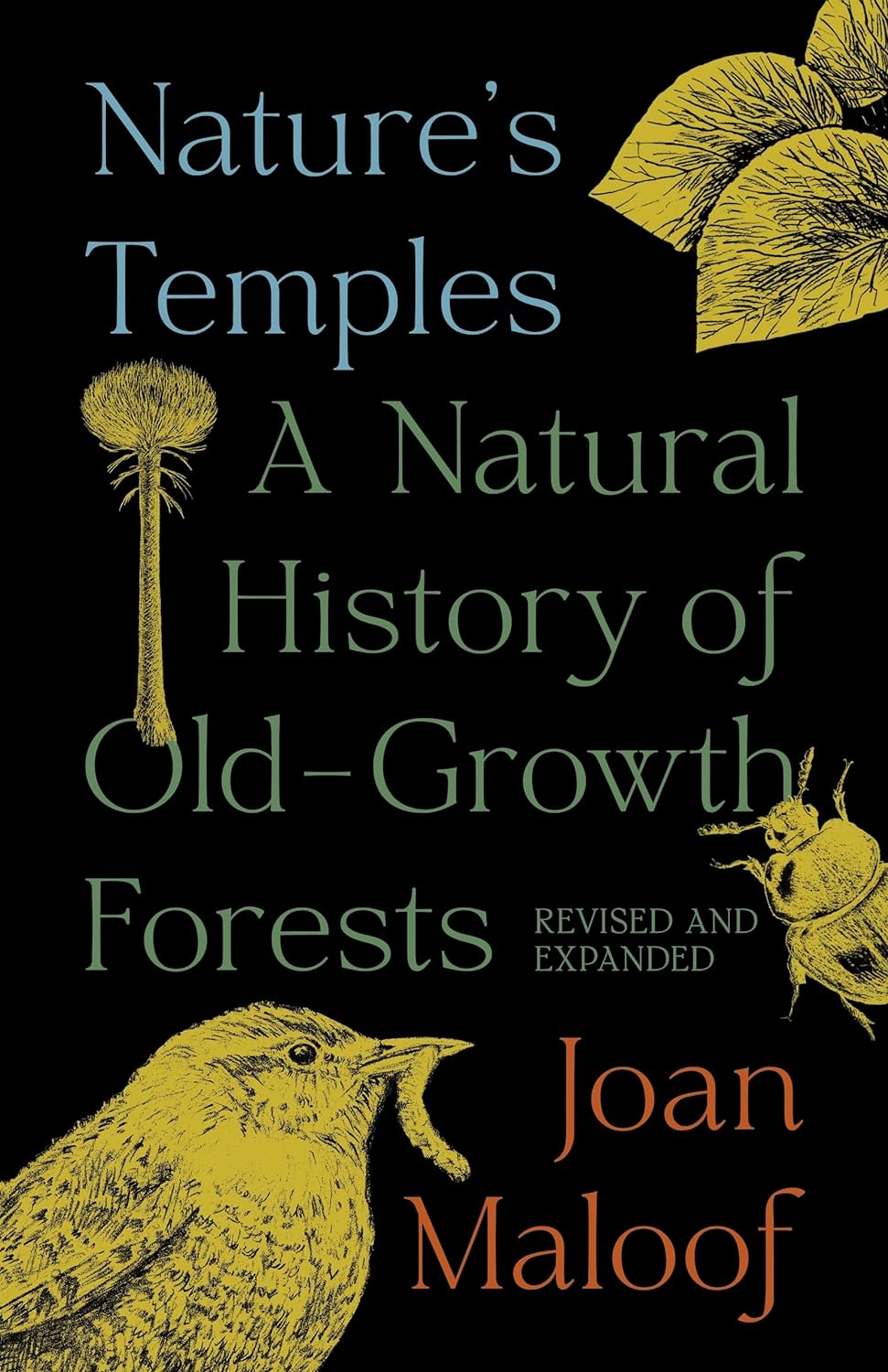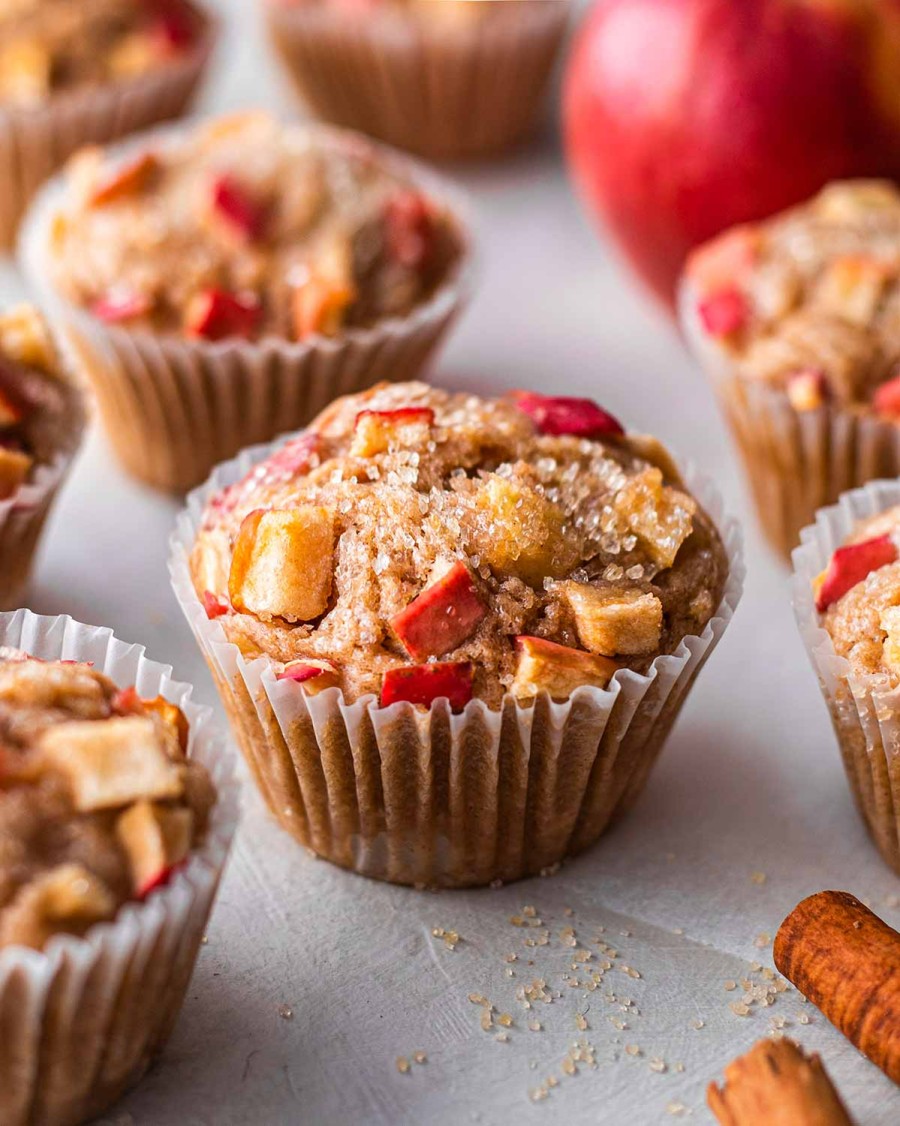
Muffins are very nice indeed! We are not talking here about American-sized giant muffins in coffee shops, but homemade muffins to serve with tea or coffee, or savoury muffins for chilli.
Apple Muffins (Rainbow Nourishments) can make use of windfalls. These freeze well and are as good as any from a top bakery. The crunchy topping is made from chopped apple and raw granulated sugar. You don’t need egg replacers, just lemon juice or apple cider vinegar to react with the plant milk to make ‘buttermilk’ for a fluffy texture.
If used, choose palm-oil-free vegan butter. Avoid choking hazards (nuts, cherries etc) for young children, and keep recipes away from pets due to unsafe ingredients (chocolate, caffeine, citrus, nutmeg, dried fruits, fresh dough etc). Read more on keeping people & pets safe in the kitchen.
One area also to be aware of these days is what you bake with. Green bakers are moving away from non-stick Teflon sheets, aluminium foil and chemical-coated baking paper, and instead using reusable silicone baking sheets and cupcake trays, which last for years, then are easily recycled.
muffins made with fresh or frozen strawberries
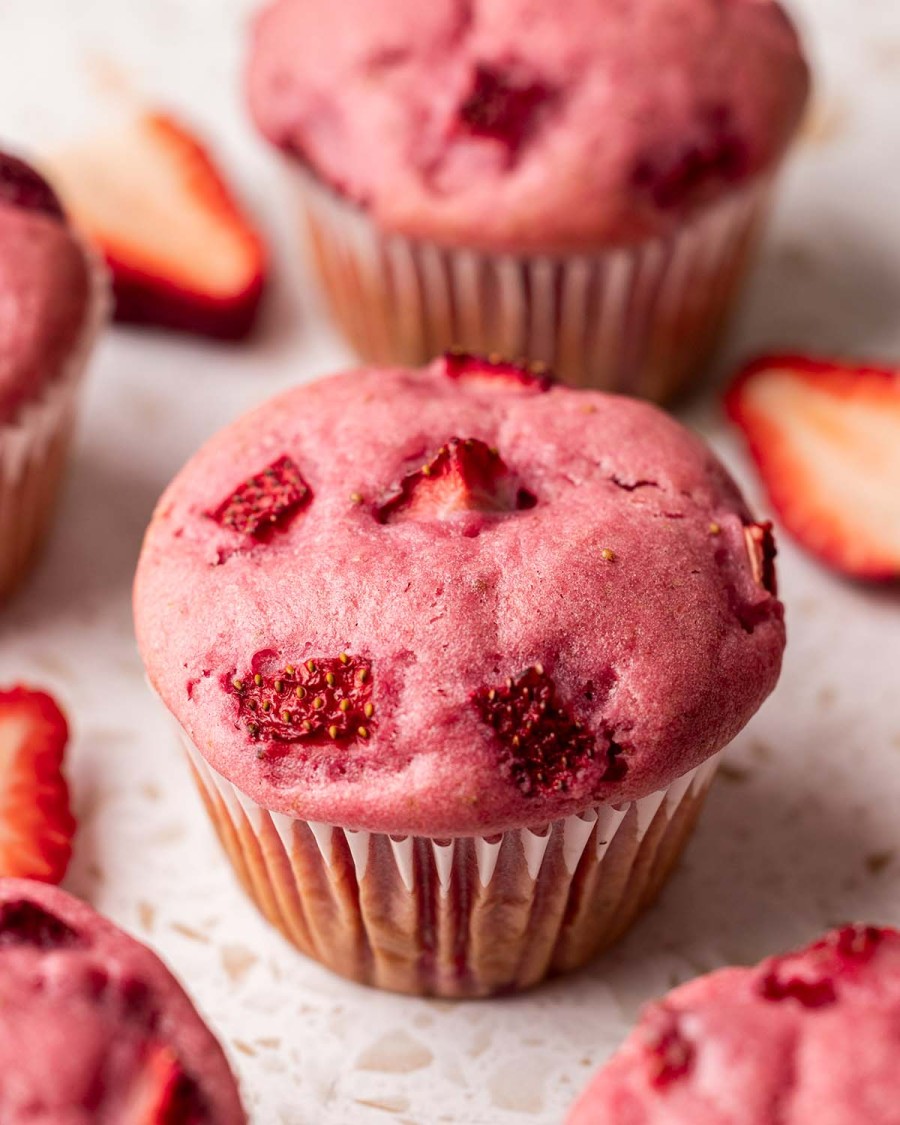
Double strawberry muffins (Rainbow Nourishments) are very simple to make, with just a few common ingredients. You can use fresh or frozen strawberries, and use beetroot powder to make them more pink (to avoid chemical pink food dyes). Anthea recommends baking every other muffin tin, for taller muffins.
classic vegan chocolate chip muffins
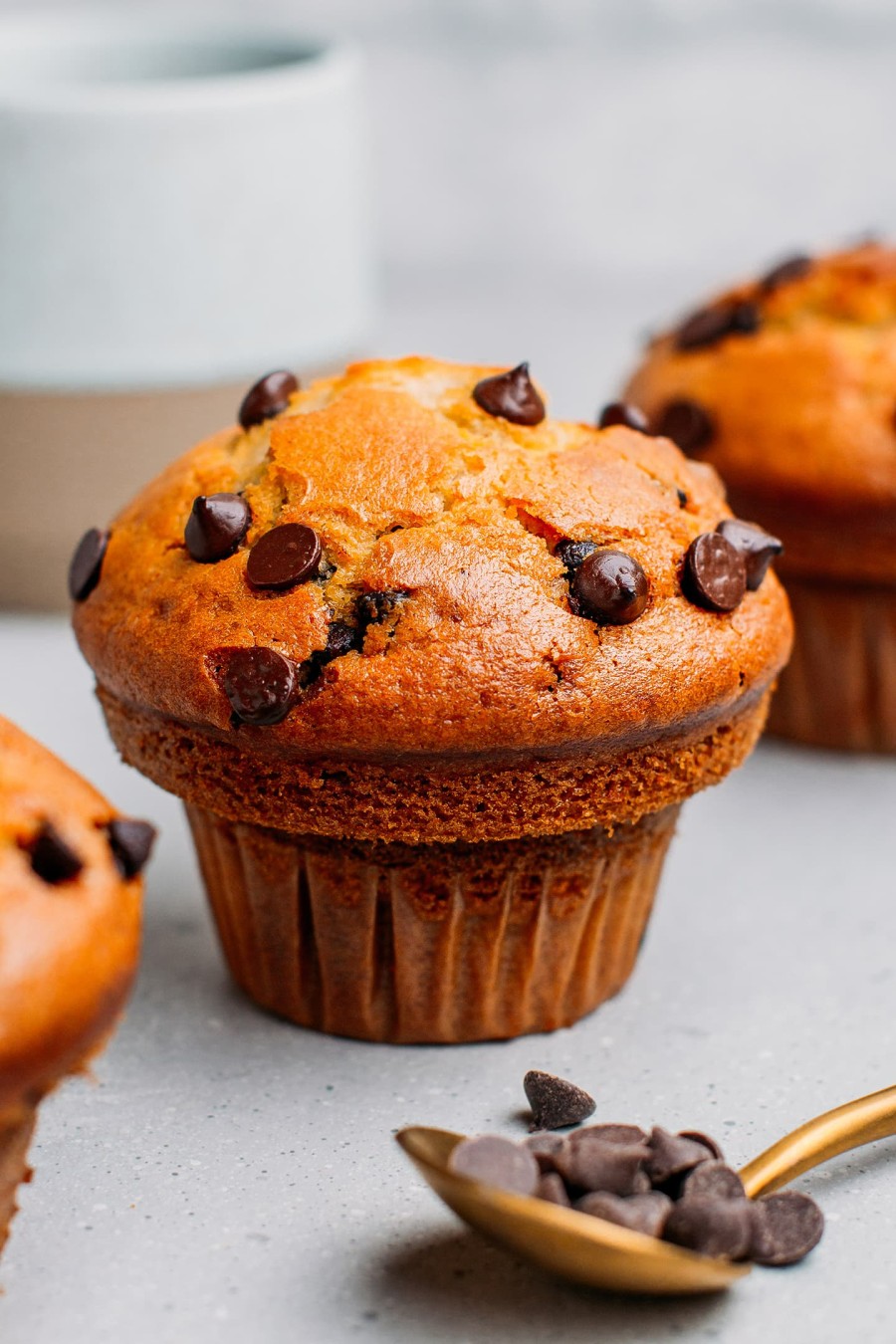
Vegan Chocolate Chip Muffins (Full of Plants) are very simple to make, and include plant-based yoghurt for a tang and fluffiness.Made with oil and plant milk, and sweetened with vanilla, you can add optional nutmeg. Moo-Free chocolate chips are vegan, sold in stores.
savoury vegan muffins for chilli
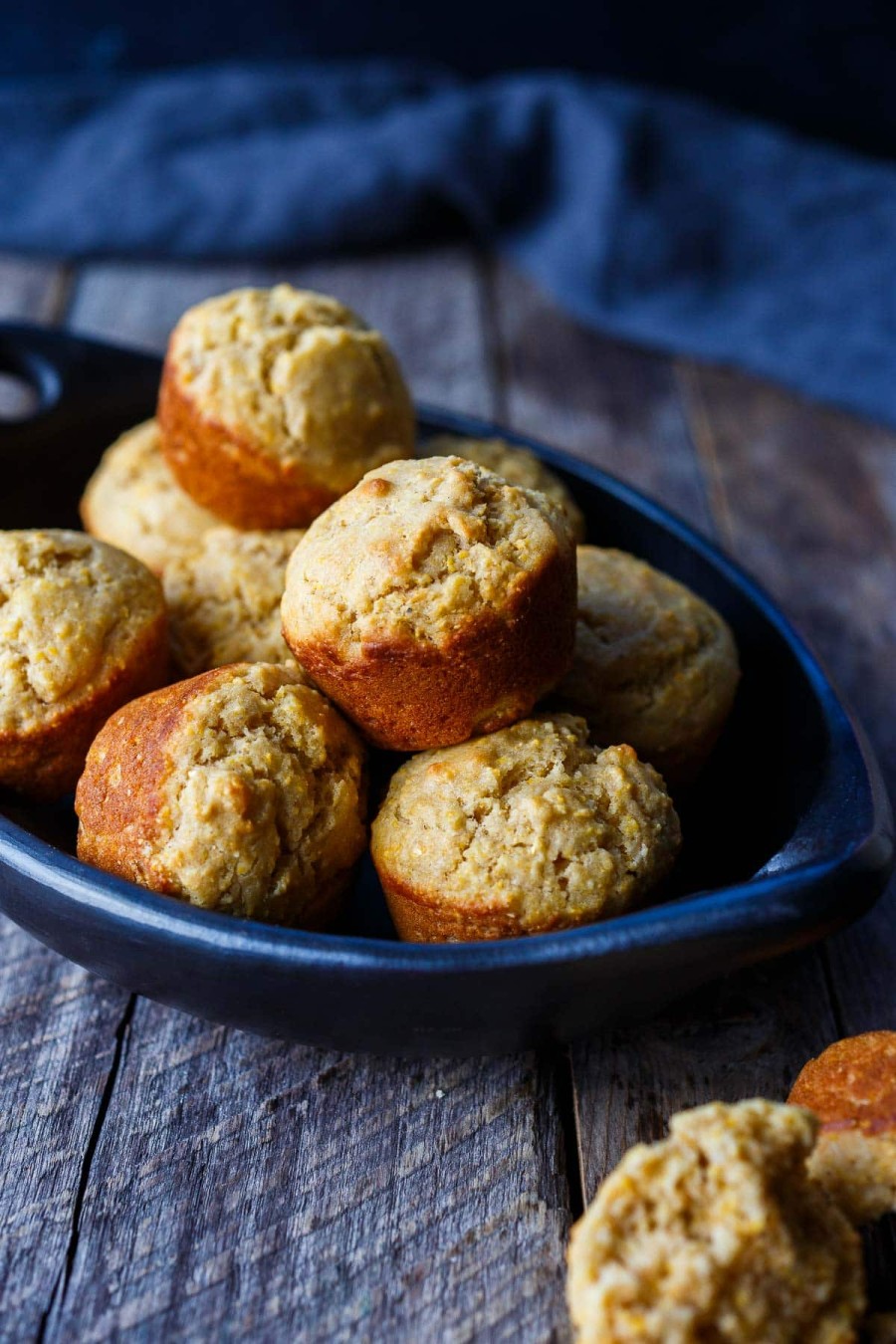
Cornbread Muffins (Feasting at Home) are lovely to serve with savoury stews. They only take 15 minutes prep time, the eggs replaced by cornmeal and applesauce for a light texture, and no need for a ‘vegan egg’.
super-simple healthy carrot muffins

These super-simple healthy carrot muffins (Ela Vegan) are super-simple to make. Sweetened with coconut sugar, these use gluten-free flour, coconut milk, almonds and shredded carrots. Bake using reusable silicone cupcake cases.
A few people with hypothyroidism (or pollen allergies) may need to avoid carrots. Mash carrots for children or swallowing difficulties, due to choking hards. Read up on keeping people & pets safe in the kitchen (many ‘human foods’ including salt and nutmeg are unsafe near animal friends).
If you like this recipe, check out Michaela’s amazing recipe book. It has visual ingredient lists, unique recipes and incredible reviews. It’s independently published (so a bit more expensive to buy than your usual fodder) but you’re then rewarded with years of delicious food you can make yourself.
how to buy & store carrots
Look for carrots in season (May to September) and choose organic, you’ll be amazed at the taste difference. Good carrots have firm unblemished bright orange skins, and young carrots should have feathery greens still attached.
Most supermarkets let you leave plastic packaging at the store, transfer carrots to reusable produce bags. Farm shops tend to sell loose produce (and carrots are more likely to be organic and locally-grown). Rinse and recycle plastic bags at kerbside recycling (or supermarket bag bins).
Once home, store carrots in the fridge after washing and removing (and composting) the green tops. If you change the water every few days, keeping them in a silicone container helps them last longer. To freeze carrots, chop first then freeze on a tray then transfer to a reusable silicone freezer bag (they will keep for a good few months, you can cook straight from frozen).
Young carrots only need the tops and tails removed and a quick wash with a veggie brush, but invest in a good peeler for older carrots (most nutrients are under the skin – a good peeler saves hours of prep time and be used for potatoes, other root veggies and making ‘ribbons’ for carrot salad)
raspberry, banana & chocolate muffins

These raspberry, banana & chocolate muffins (Full of Plants) are an ideal breakfast treat, with a morning cuppa. These are not like your giant American muffins, but smaller and more tasty muffins, from a French chef (when asked why they don’t get fat, one French woman in London replied it’s because shops in France don’t sell muffins big enough to eat your car!)
Rather than use wasteful disposable cupcake cups, consider investing in reusable silicone cupcake cases. Silicone is made partly with fossil fuels (along with sand) but lasts for years, is food-safe and can be recycled at end of use (rather than being binned to break down into microplastics).
Mash bananas to avoid choking hazards for babies & swallowing difficulties. Due to potassium, some people with kidney disease and some heart/blood pressure conditions should limit intake. Keep this recipe away from pets, due to unsafe ingredients. Read more on keeping people & pets safe in the kitchen
Bananas are (not local) berries but are portable and easy to eat and due to potassium, make great workout snacks. They are also good to thicken smoothies and popular in many recipes from banana bread to banoffee pie. Due to tryptophan (an animo acid that produces serotonin) they are good for depression and insomnia (try eating half a banana before bed, as a ‘sleeping pill’.
Look for sea-freighted bananas (farm shop ones won’t be wrapped in plastic, unlike supermarkets that wrap them to keep away from the Fair Trade plastic-wrapped ones – at markets, you can find loose organic Fair trade banana! Waste banana products are made into writing paper, banana leaf coffins and even banana leather! You can even use the inside of banana peel to polish your shoes, or mash up the flesh as a face mask.
Store bananas in a cool place (not the fridge or they will go black). If freezing bananas to thicken smoothies, slice them first and freeze on a tray, then keep in a silicone freezer bag for up to 3 months. You can use frozen bananas to make banana ice-cream.



